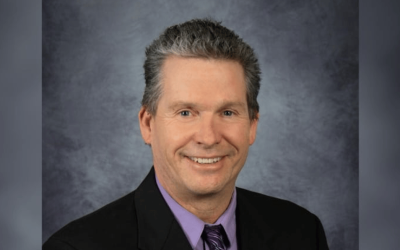Parents taking a gander at their kid’s math textbook and wondering what the heck they’re looking at may want to check out a recent study from the Frontier Centre for Public Policy, based in Winnipeg.
It helps explain why what you’re seeing seems unfamiliar. And why you should be alarmed.
Author Michael Zwaagstra, a Manitoba high school teacher and education researcher, says the current fad of using “problem-based” or “discovery” techniques to teach math means schools are “largely failing” to give students a solid math foundation.
They don’t get drilled in “times tables” or learn the standard algorithms their parents did — essentially the formulaic steps for solving a basic math problem — which means these skills no longer come automatically to them.
We are not alone in Ontario on this, where students have been slipping in provincial math scores lately. It’s an affliction sweeping the country, and beyond.
Anticipating the edu-establishment will pull forward the “what-about-our-fabulous-international-test-scores?” argument, Zwaagstra swats that one down fast.
In Ontario, we’ve been hearing lots in this election campaign about our students’ stellar standings in the Programme for International Student Assessment (PISA), which tests 15-year-olds’ reading, math and science skills.
However, Zwaagstra points out PISA’s math test has been criticized — singled out for a “D” grade in one report — for focusing on “everyday math,” not the higher level algebra, geometry, fractions or other skills appropriate to a high school curriculum.
While the kids may be doing alright in international tests, they’re falling apart when they get to post-secondary schools.
Similar concerns about the math curriculum have been expressed by university math professors, who are reporting steadily deteriorating first-year student math skills in their classrooms.
“Like many of my colleagues, I am dismayed by the state of the mathematics instruction in elementary and secondary schools,” states McGill math professor Pengfei Guan, quoted in Zwaangstra’s paper.
Guan, former vice-president of the Canadian Mathematical Society says, “there is a well-documented discussion of problems in mathematics education among mathematicians.” What’s the root of the problem?
Zwaagstra says it’s an educational philosophy called “constructivism,” affecting all areas of the curriculum and being pushed at faculties of education across the country.
Students are supposed to learn through discovery and building on what they already know, instead of being directly and clearly taught foundational facts, knowledge and skills (sometimes disparagingly referred to as “drill and kill”).
Not surprisingly, “professors of math are agreeing with my paper,” Zwaagstra tells me during his lunch break at school on Tuesday. “Professors of math education are fiercely disagreeing with it.” Educators sometimes argue the problem-based approach means they’re aiming for “deep understanding.” But you can’t even approach deep understanding if you’re confused — a by-product of not being given clear, basic computational tools.
For example, a Grade 4 math textbook shows students how to solve the same three-digit addition question three complicated different ways. Why? What’s wrong with one simple way that works every time?
Parents concerned about this — and considering this country’s thrust towards a knowledge-based economy, they should be screaming mad about it — should lobby their politicians for change, says Zwaagstra.
It’s politicians who ultimately approve curricula, which textbooks should be bought and budgets for all that professional development teachers are getting, supposedly to help our kids perform better.
If they can’t make a difference in how our kids are taught at school, we’re really in trouble.


